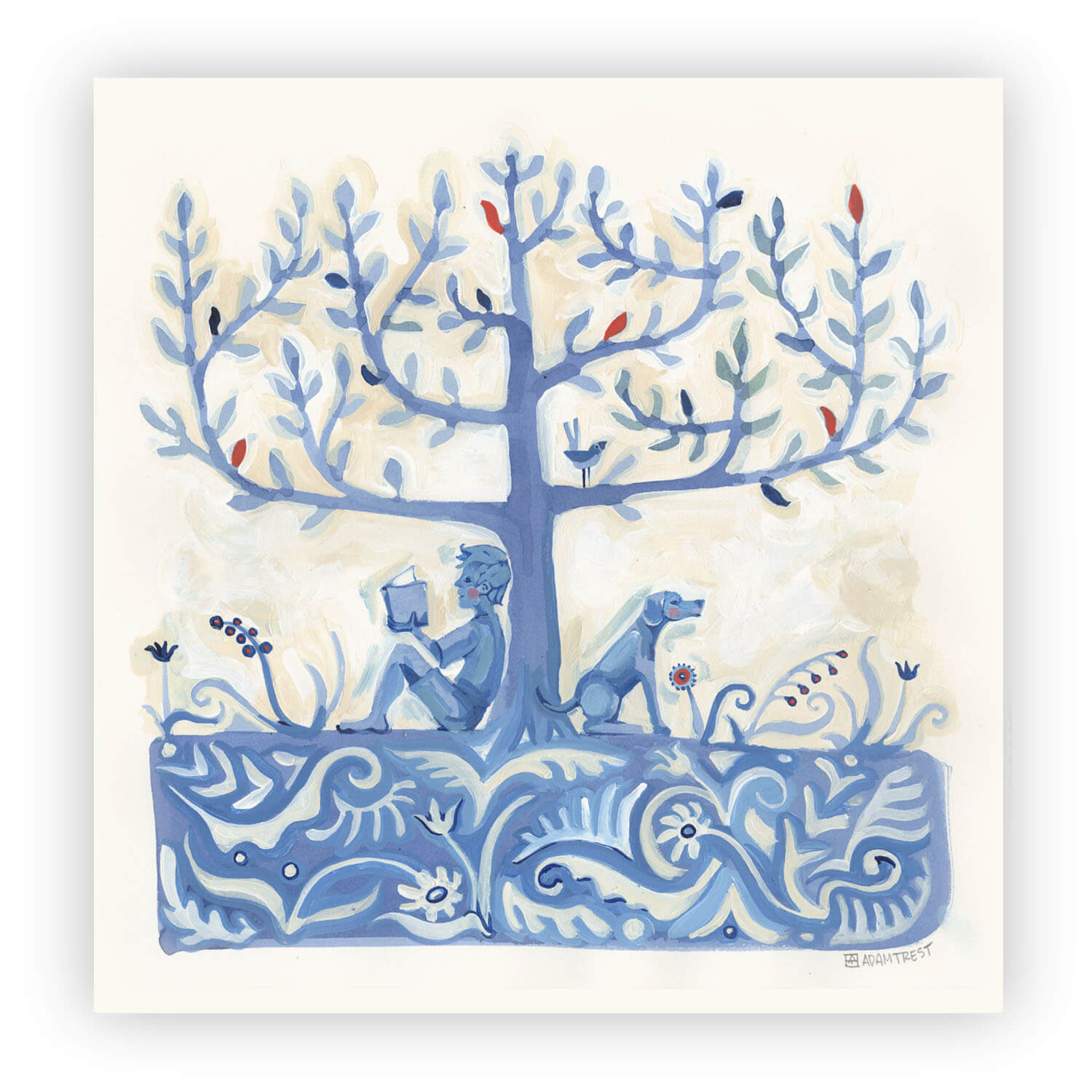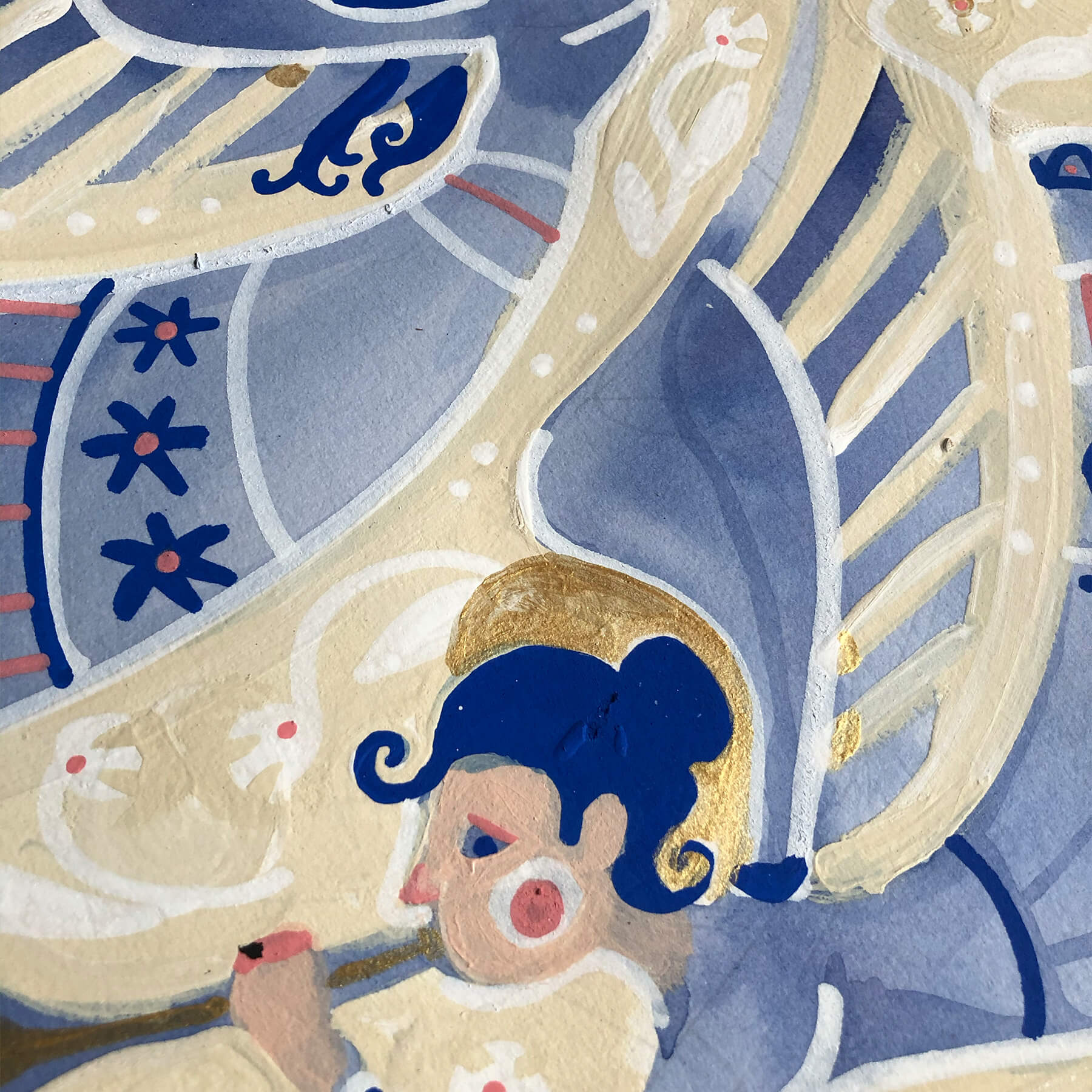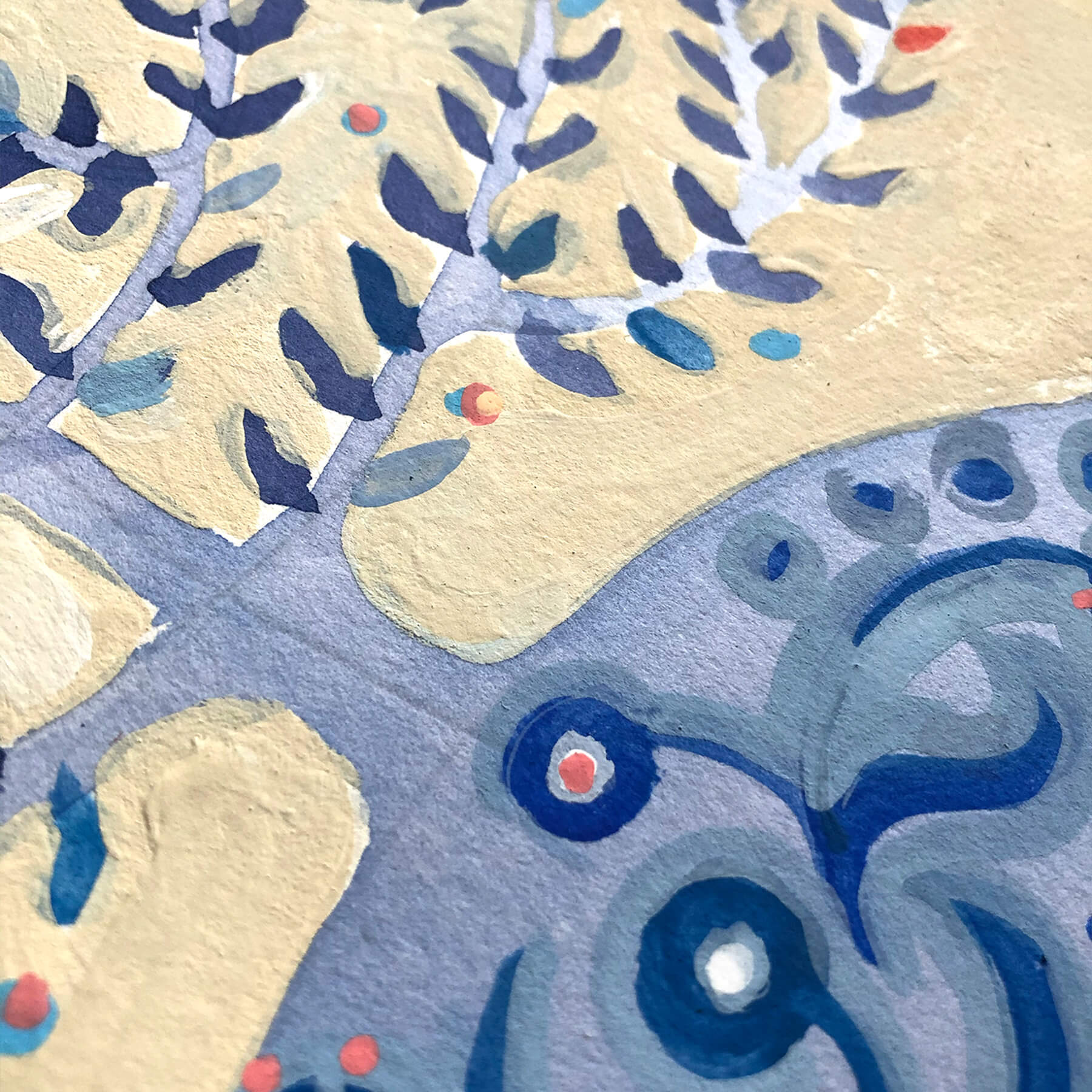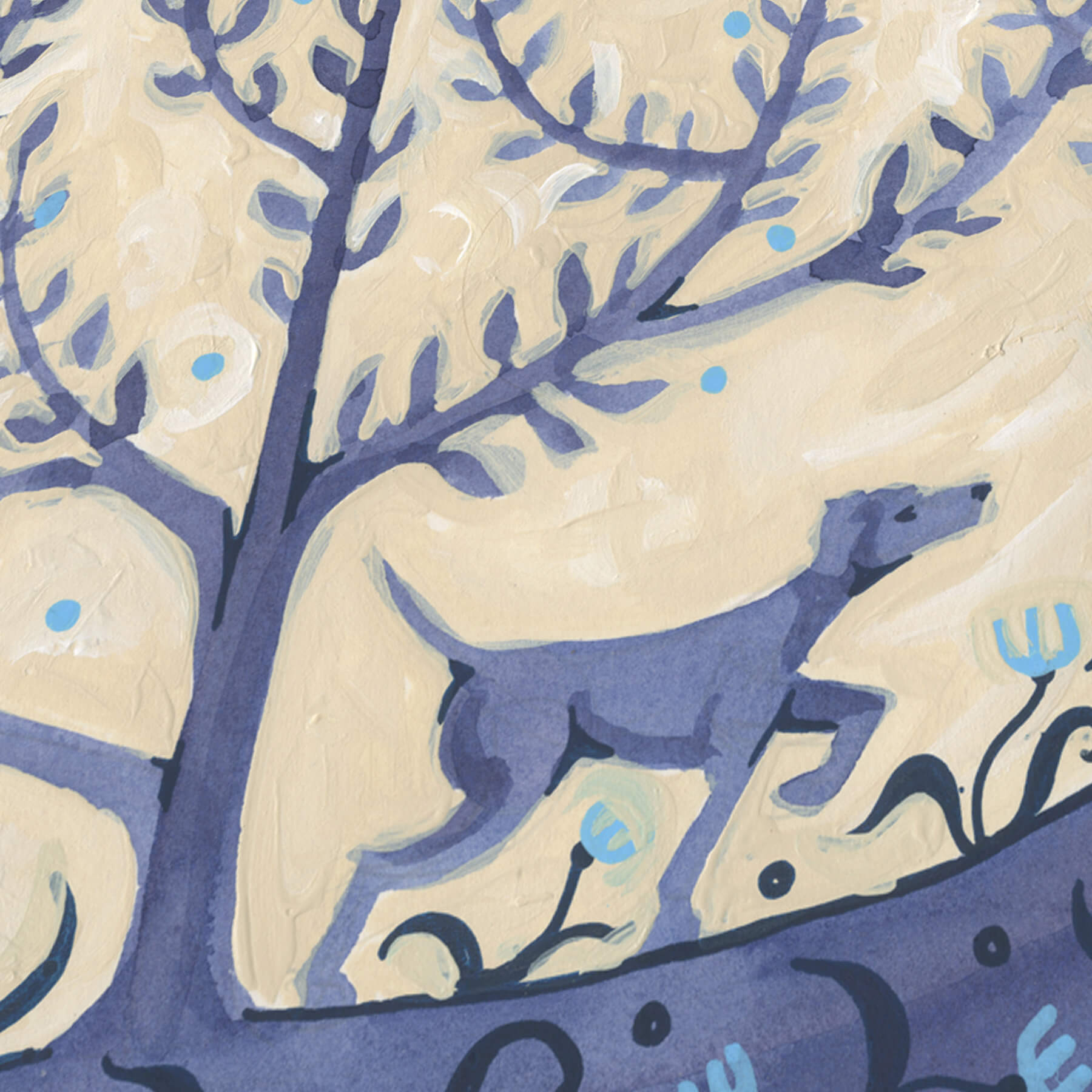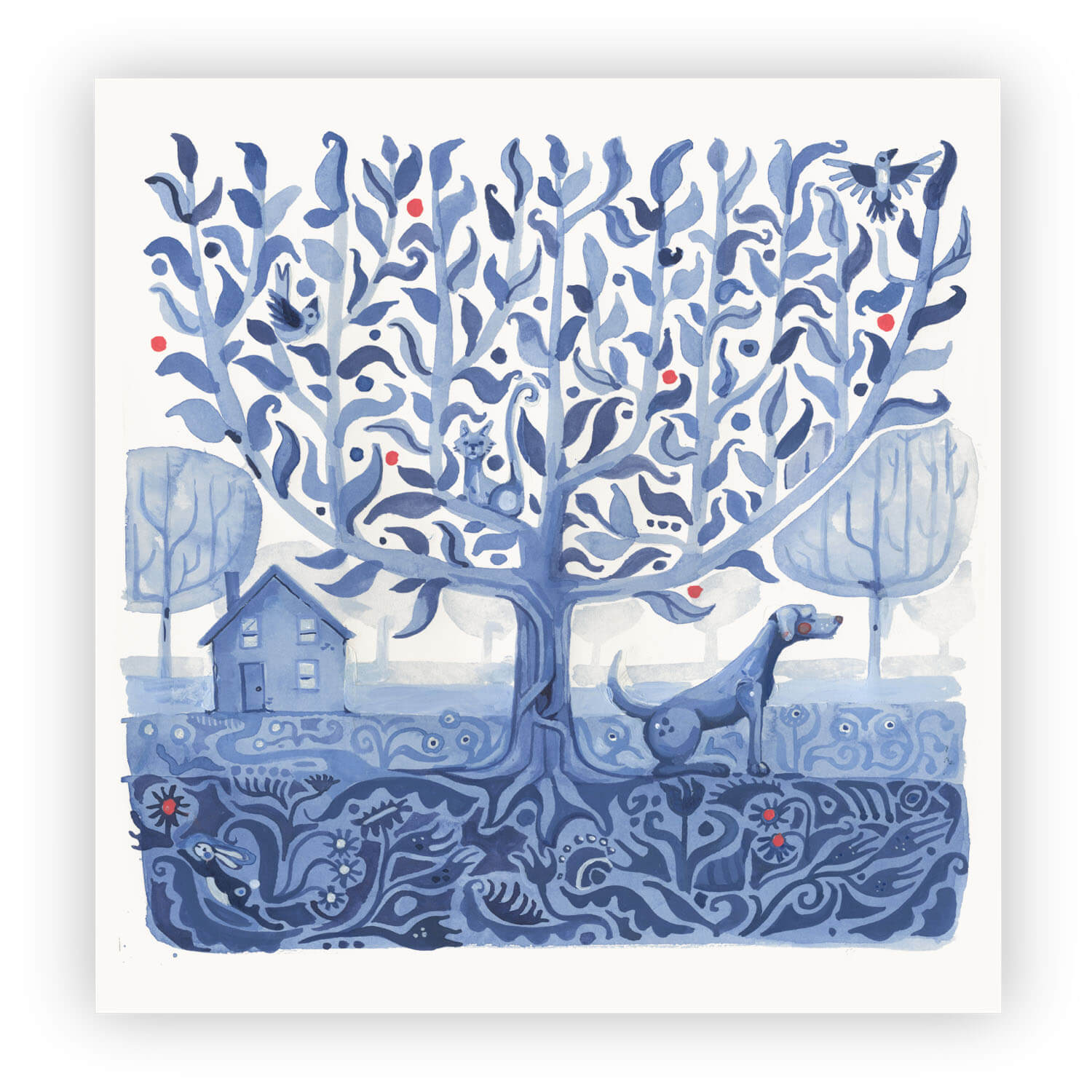The first dead person I ever saw.
Papa Wilson, my grandfather, died when I was eight years old. This was in 1964. I don’t remember many details about his actual death, but I do remember that he was 84 when he died. I thought that was positively ancient.
Mama was part of a family of twelve kids. At some point you cross the threshold of having a family and it becomes a litter. She was close to her daddy, and she indeed grieved.
There was some debate with Daddy and her about whether or not I should go to the funeral. Maybe they thought I’d be traumatized. I was up for it. I had sort of a morbid fascination with the whole process. I had a nebulous idea about how all this worked from TV shows and movies. I knew it was all about preparing the body for burial, picking out a casket, having the funeral itself (which these days more often referred to as a “memorial service,” as if the term “funeral” is too archaic or disturbing. Maybe they’re two different things.)
I also knew that there’d be a procession – that Papa Wilson’s casket would be carried by the pallbearers across the road from the church to the cemetery itself, and there he’d be “interred” (another infrequently used word) by being dropped into a vault in the ground and subsequently sealed and covered up in dirt. I remember thinking “what IS a pall anyway?” The whole thing, from the time the body was prepared for burial until the time it was lowered in the ground, was choreographed with the panache of a Broadway musical.
The most intriguing part of the process was what was called the “viewing.” “Wake” is another term. The excitement I felt at the time was knowing that I was going to be able to see a dead person. I loved Papa Wilson too, but I had no fear about seeing his body. I found the term “viewing” to be very accurate. We all had to take a look at him. It was part of the process, and was supposed to bring some closure. I’d add, too, that in southeast Alabama, another term was prior to the funeral you had a “sitting up,” aka wake, where someone spent the night at the funeral home or the house and sat with the body, as if it were going anywhere. The custom came from the need to keep mice and other vermin from making themselves at home in the casket – they needed to be shooed off. Or to keep the cat from sitting on the body. It didn’t matter if there were mice or cats around. You were simply expected to keep the departed company.
Papa Wilson lay in state in his house, in the parlor. I remember relatives and friends milling around on the front porch, talking in subdued whispers, as though if you were too loud it might disturb Papa Wilson. When you walked in the front door of the house, you came in the living room, and through French doors from the living room you’d enter the parlor/dining room.
So here’s young Tony, standing on the front porch, flanked by Mama and Daddy. Mama said, “Would you like to say goodbye to Papa?” I didn’t know about that … I knew he wouldn’t be able to hear me, but I also figured the goodbye was more for me than him. I said yes, but it was more of me wanting to see what he looked like than say any farewells.
So I was ushered into the parlor. People parted to let us come in. I saw the casket, gleaming in the subdued light, with the top opened, or at least half of it. I saw a white ruffle of pleated fabric spilling over the side. But because I wasn’t tall enough, I couldn’t really see into it. I could see Papa Wilson’s nose and not much else.
At we approached the side of the casket I was able to peek in. Papa Wilson was dressed in a fine suit. I heard Mama sniffling, and I glanced up at Daddy. His jaws were working, his teeth clenched.
“Doesn’t he look sweet,” Mama said.
“He looks like he’s asleep,” Daddy said.
My thought? “He looks like he’s dead.” I wasn’t fooled.
Like his grandson is now, Papa Wilson was bald. Typically his head shone like a polished hubcap. This time, however, it was so powdered that it looked like parchment. His face was stretched tight, almost like a mask. His mouth was what disturbed me – it was though it was made of wax. (I’ve since learned that mouths can be a real problem for undertakers – because the mouth is always in motion, to see it perfectly still is an anomaly.)
I stood still and examined him with frank curiosity. I think my folks expected me to cry, or run, or something. I did none of these. Candidly, I didn’t feel anything. My primary thought was, “That’s not Papa Wilson. That’s just the horse he rode in on.”
Since that day I’ve been to many more funerals and performed a fair share, too. It’s given me plenty of opportunities to observe grief. Here’s your takeaway – everyone grieves differently, and you are in no place to judge if someone doesn’t grieve the way you would. Grief is necessary.
To an observer of the eight-year-old Tony, they might feel that I didn’t grieve appropriately, if at all. That may be so.
When you think about it, grief is a part of closure, or should be. The overarching need is to move on. Grief, whatever its source, is a milestone, a transitional point from what was to what is. To get stuck in the what was can be a recipe for despair. Losses will happen, and there’s nothing that can be done about that. But staying bogged down in that loss, refusing to move on, is to doubt the bigness and sovereignty of God, who has no desire for us to be mired in the past, and is aware and present in our loss and perhaps even engineered it.
How do you move on?
This may be shallow, but … you just do. While your emotions may be raging and drowning you, understand that they are transient (unless there is some clinical problem, which we won’t go into here. I understand the reality of chronic depression, anxiety, anger, etc.).
There is no proper way to grieve. Every individual deals with loss in a way unique to themselves. Be wary of saying, “I know how you feel.” Uh, no. You might know how you would feel or have felt, but the other person? They aren’t you, and don’t cast them in your autobiography.
Say this familiar biblical phrase: “And it came to pass…”
What is isn’t what will always be. And while we may always have a sense of loss after a tragedy, the reality is that it doesn’t have to cripple us. It is legitimate to miss what once was. But, armed with the knowledge that you can’t go back, and by listening to your head as well as your heart, it is possible – and necessary – to move forward toward a new horizon. What happens tomorrow may be a mystery, but it is no mystery in knowing that no matter where you’re headed, God is already there.




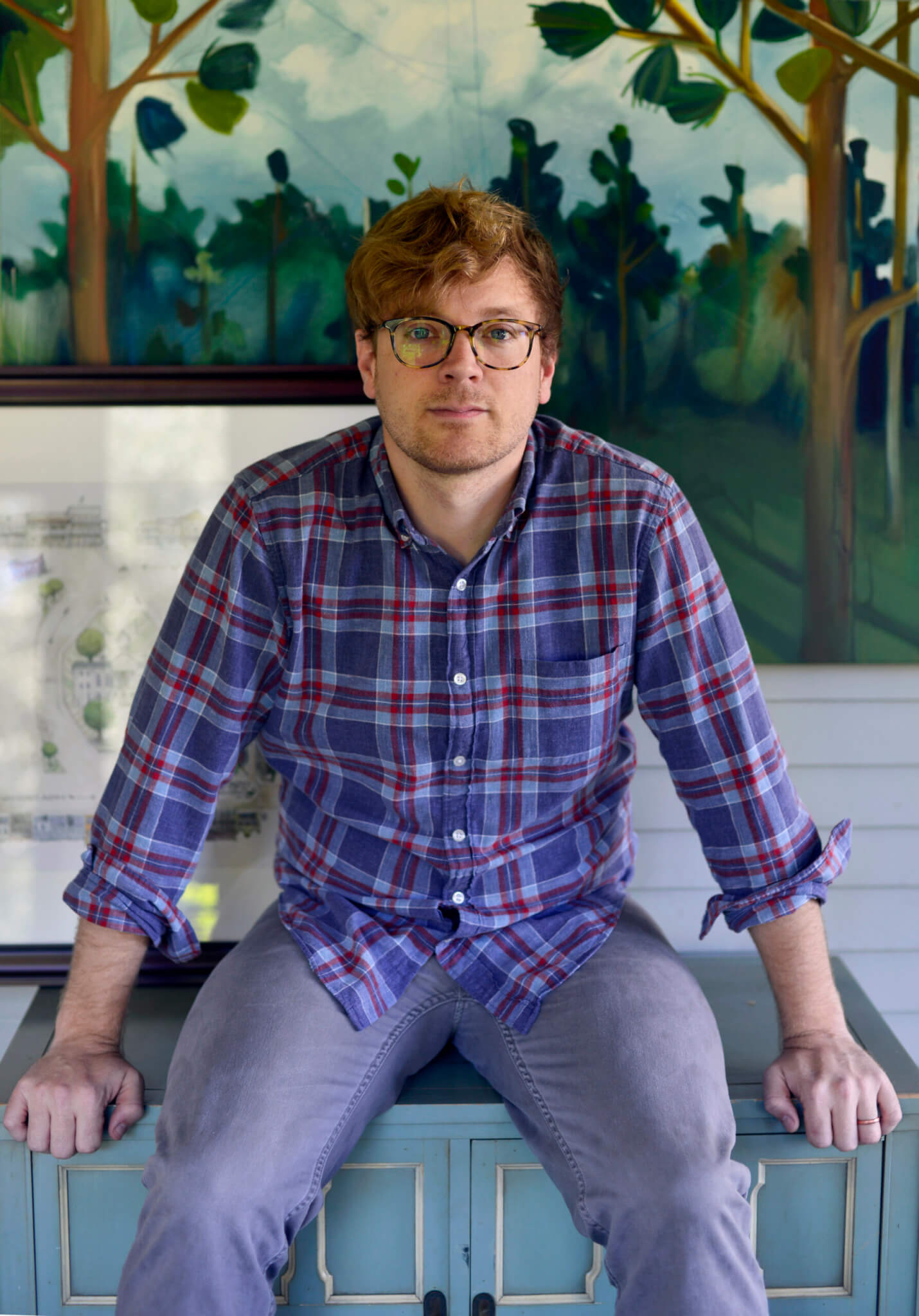 Y’all know I purely love having guest bloggers. So I’m so so pleased to welcome Adam Trest to our special place!
Y’all know I purely love having guest bloggers. So I’m so so pleased to welcome Adam Trest to our special place!